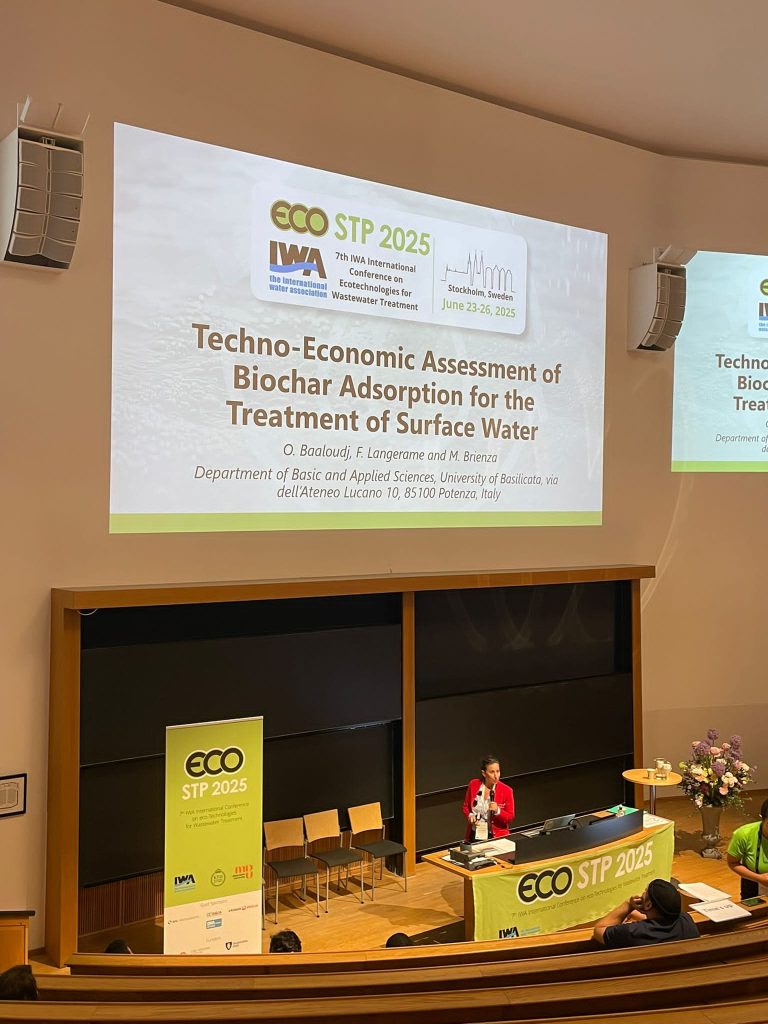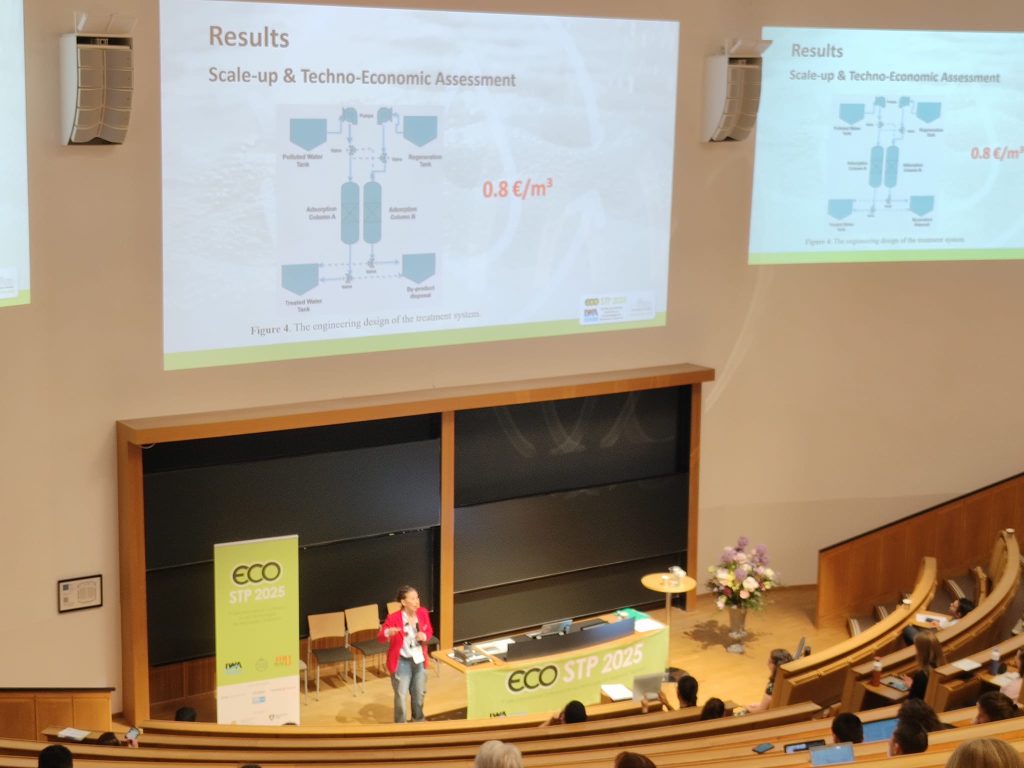From June 23rd to 26th, 2025, the SAFE project was proudly represented at the 7th IWA International Conference on eco-Technologies for Wastewater Treatment (ecoSTP2025), held in Stockholm, Sweden. Hosted by the International Water Association (IWA) in collaboration with KTH Royal Institute of Technology and Mälardalen University, the event gathered scientists, engineers, and decision-makers from around the world to explore the future of eco-technologies in water management.
This renowned conference is a key meeting point for innovation in sustainable and circular wastewater treatment. The 2025 edition focused on actionable solutions to current environmental pressures, highlighting advances in resource recovery, nature-based technologies, digital water systems, and techno-economic sustainability—topics closely aligned with the mission of PRIMA-SAFE.

SAFE Contribution: Techno-Economic Assessment of Biochar Adsorption
During the conference, the SAFE team presented the study:
“Techno-Economic Assessment of Biochar Adsorption for the Treatment of Surface Water”
This work evaluated the use of biochar, a carbon-rich material derived from biomass, as a low-cost, sustainable adsorbent for treating surface waters impacted by micropollutants. The study combined laboratory-scale removal data with a techno-economic assessment, offering insight into both the efficacy and financial feasibility of deploying biochar-based systems for decentralized water treatment.
Key aspects included:
- Removal performance for selected pollutants (e.g., pharmaceuticals and trace organics)
- Estimations of capital and operational costs
- Applicability in small- to medium-scale treatment facilities
- Alignment with circular economy strategies and EU sustainability targets

A Platform for Knowledge Exchange and Innovation
Participation in ecoSTP2025 allowed the SAFE project team to connect with leading experts in the field, share its ongoing research, and engage in valuable discussions on eco-efficient solutions to water treatment challenges. The presentation sparked interest and dialogue around the potential for biochar technologies in both Mediterranean and global contexts.
SAFE’s presence at the conference highlighted the project’s active role in bridging experimental science with real-world application, contributing to the global conversation on how to treat water in more sustainable, cost-effective, and environmentally responsible ways.

